Anpassungsfähigkeit und Resilienz des Finanzsystems
Diese Forschungsgruppe untersucht kritische Aspekte der Anpassungsfähigkeit und Widerstandsfähigkeit von Finanzsystemen. Sie analysiert die Auswirkungen von Naturkatastrophen auf Finanzsysteme, die Auswirkungen politischer Präferenzen für die grüne Transformation und die Bedeutung von Kultur in den Volkswirtschaften.
Forschungscluster
Finanzresilienz und RegulierungIhr Kontakt

- Abteilung Finanzmärkte
PROJEKTE
08.2022 ‐ 07.2025
OVERHANG: Schuldenüberhang und grüne Investitionen – die Rolle von Banken für den klimafreundlichen Umgang mit emissionsintensiven Anlagenvermögen
Bundesministerium für Bildung und Forschung (BMBF)
Ziel von OVERHANG ist es, die Rolle von Banken für den klimafreundlichen Umgang mit emissionsintensiven Anlagevermögen zu untersuchen. Hierdurch sollen politikrelevante Erkenntnisse zu Finanzregulierung, staatlich kontrollierter Kreditvergabe und Finanzstabilität identifiziert sowie eine Sensibilisierung der verschuldeten Akteurinnen und Akteuren erreicht werden.
Das Projekt wird vom Bundesministerium für Bildung und Forschung (BMBF) finanziert.
01.2015 ‐ 12.2019
Interactions between Bank-specific Risk and Macroeconomic Performance
Deutsche Forschungsgemeinschaft (DFG)
07.2016 ‐ 12.2018
Relationship Lenders and Unorthodox Monetary Policy: Investment, Employment, and Resource Reallocation Effects
Leibniz-Gemeinschaft
We combine a number of unique and proprietary data sources to measure the impact of relationship lenders and unconventional monetary policy during and after the European sovereign debt crisis on the real economy. Establishing systematic links between different research data centers (Forschungsdatenzentren, FDZ) and central banks with detailed micro-level information on both financial and real activity is the stand-alone proposition of our proposal. The main objective is to permit the identification of causal effects, or their absence, regarding which policies were conducive to mitigate financial shocks and stimulate real economic activities, such as employment, investment, or the closure of plants.
Referierte Publikationen
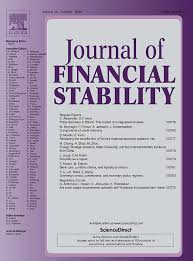
Banking Globalization, Local Lending, and Labor Market Effects: Micro-level Evidence from Brazil
in: Journal of Financial Stability, October 2021
Abstract
Recent financial crises have prompted the interest in understanding how banking globalization interacts with domestic institutions in shaping foreign shocks’ transmission. This paper uses regional banking data from Brazil to show that a foreign funding shock to banks negatively affects lending by their regional branches. This effect increases in the presence of frictions in internal capital markets, which affect branches’ capacity to access funding from other regions via intra-bank linkages. These results also matter on an aggregate level, as municipality-level credit and job flows drop in exposed regions. Policies aiming to reduce the fragmented structure of regional banking markets could moderate the propagation of foreign shocks.
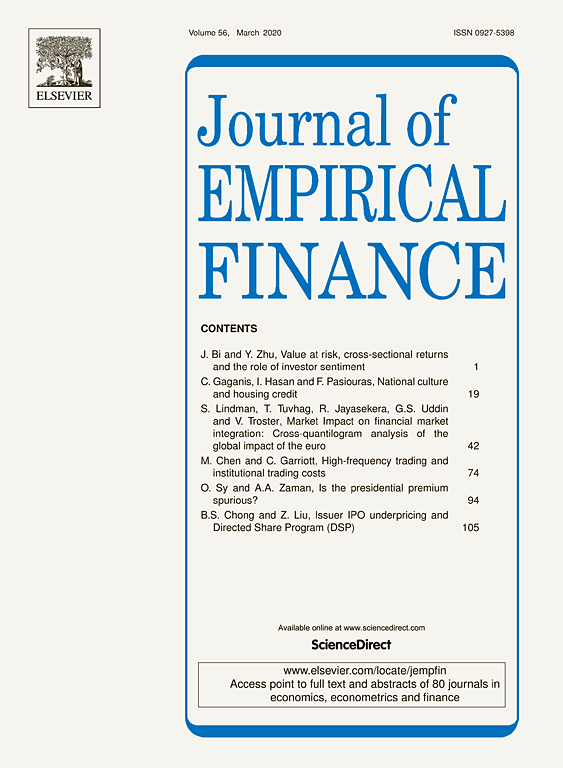
Stock Price Fragility and the Cost of Bank Loans
in: Journal of Empirical Finance, September 2021
Abstract
This study examines whether the flow volatility experienced by institutional investors affects firms’ financing costs. Using Greenwood and Thesmar’s (2011) stock price fragility measure, we find that there is a positive relationship between fragility and firms’ costs of bank loans. This effect is most pronounced when lenders rely more on institutional shareholders to discipline corporate management, or when loans are made by relationship lenders, suggesting that unstable flows could weaken institutional investors’ monitoring effectiveness and strengthen relationship banks’ bargaining power.
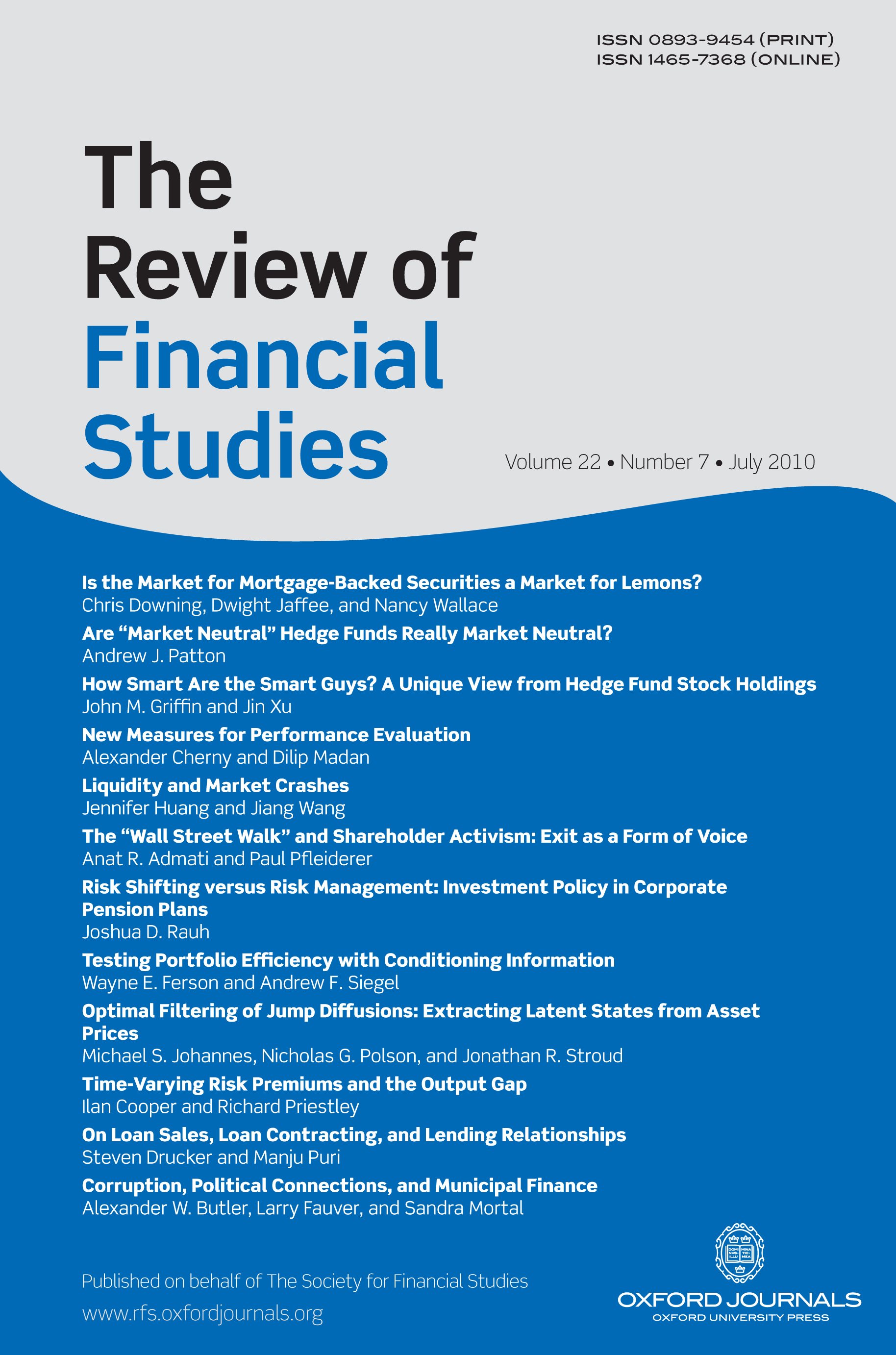
Political Cycles in Bank Lending to the Government
in: Review of Financial Studies, Nr. 6, 2021
Abstract
We study how political party turnover after German state elections affects banks’ lending to the regional government. We find that between 1992 and 2018, party turnover at the state level leads to a sharp and substantial increase in lending by local savings banks to their home-state government. This effect is accompanied by an equivalent reduction in private lending. A statistical association between political party turnover and government lending is absent for comparable cooperative banks that exhibit a similar regional organization and business model. Our results suggest that political frictions may interfere with government-owned banks’ local development objectives.
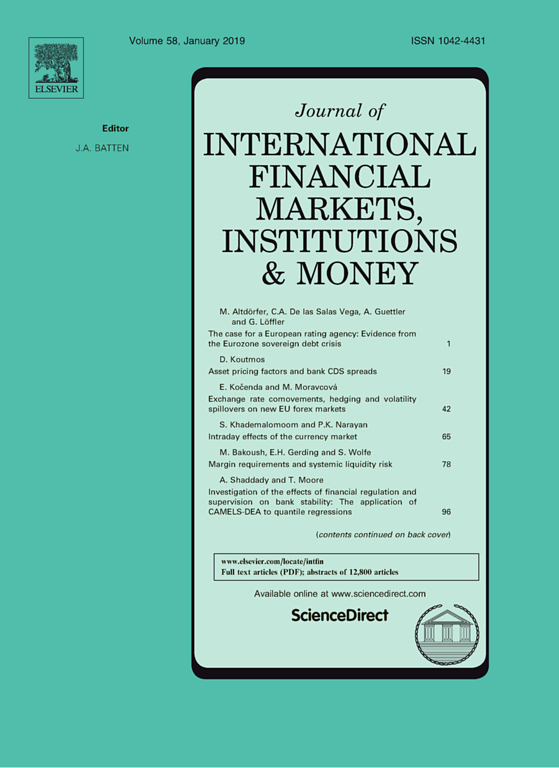
Loan Syndication under Basel II: How Do Firm Credit Ratings Affect the Cost of Credit?
in: Journal of International Financial Markets, Institutions and Money, May 2021
Abstract
This paper investigates how syndicated lenders react to borrowers’ rating changes under heterogeneous conditions and different regulatory regimes. Our findings suggest that corporate downgrades that increase capital requirements for lending banks under the Basel II framework are associated with increased loan spreads and deteriorating non-price loan terms relative to downgrades that do not affect capital requirements. Ratings exert an asymmetric impact on loan spreads, as these remain unresponsive to rating upgrades, even when the latter are associated with a reduction in risk weights for corporate loans. The increase in firm borrowing costs is mitigated in the presence of previous bank-firm lending relationships and for borrowers with relatively strong performance, high cash flows and low leverage.

The State Expropriation Risk and the Pricing of Foreign Earnings
in: Journal of International Accounting Research, Nr. 2, 2021
Abstract
We examine the pricing of U.S. multinational firms' foreign earnings in regard to their risk of expropriation and unfair treatment by the governments of the countries in which their international subsidiaries are located. Using 8,891 firm-years observations during the 2001–2013 period, we find that the value relevance of foreign earnings increases with the improvement of the protection from state expropriation risk in the subsidiary host-countries. Our results are not driven by the earnings management practice, investor distraction, country informativeness, and political and trade relationship of a foreign country with the U.S. Furthermore, our results are robust to the confounding effects of country factors, measurement error in the variable of the risk of expropriation, the influence of private contracting institutions, and endogeneity in the decision of the location of subsidiaries.
Arbeitspapiere
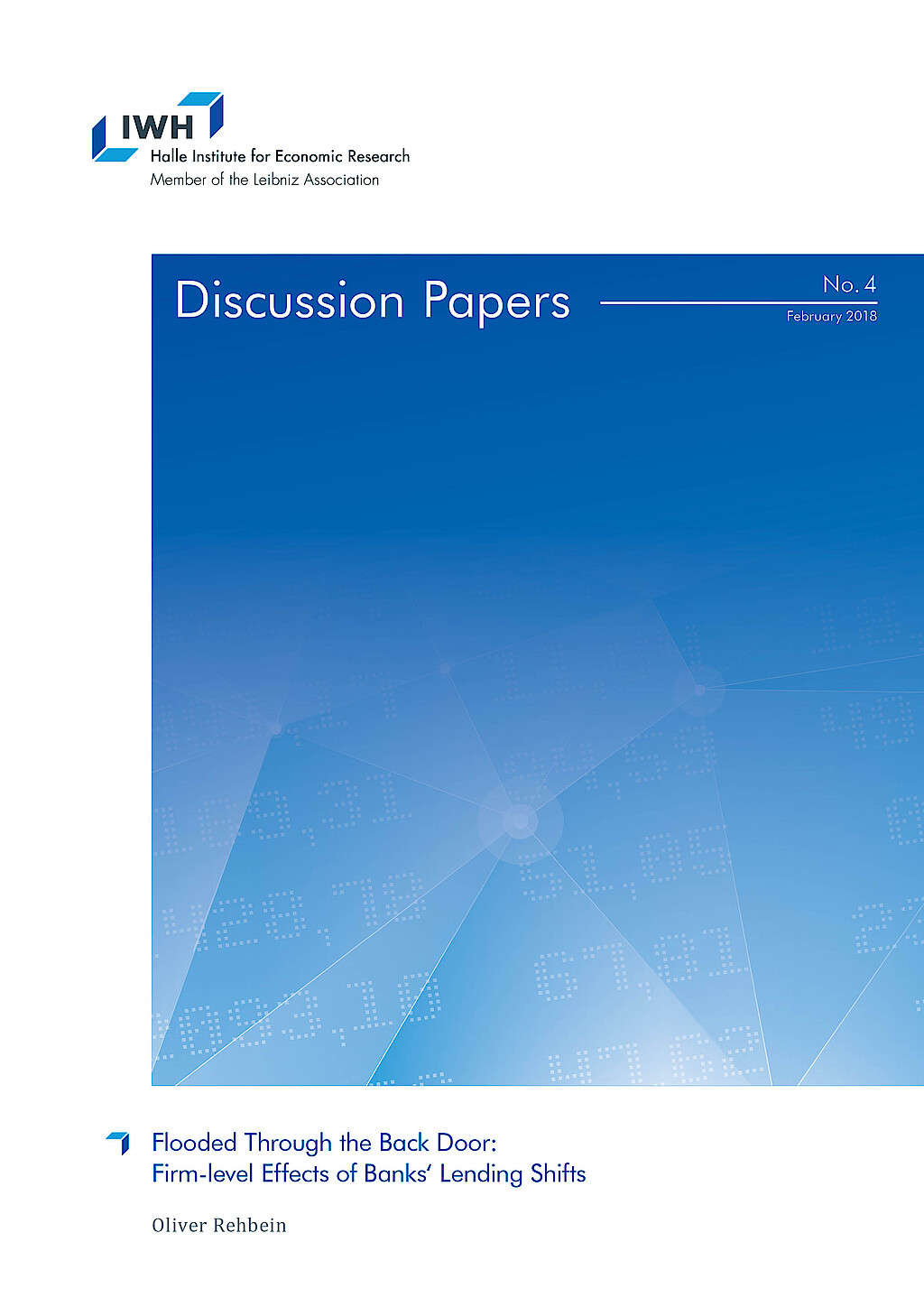
Flooded Through the Back Door: Firm-level Effects of Banks‘ Lending Shifts
in: IWH Discussion Papers, Nr. 4, 2018
Abstract
I show that natural disasters transmit to firms in non-disaster areas via their banks. This spillover of non-financial shocks through the banking system is stronger for banks with less regulatory capital. Firms connected to a disaster-exposed bank with below median capital reduce their employment by 11% and their fixed assets by 20% compared to firms in the same region without such a bank during the 2013 flooding in Germany. Relationship banking and higher firm capital also mitigate the effects of such negative cross-regional spillovers.
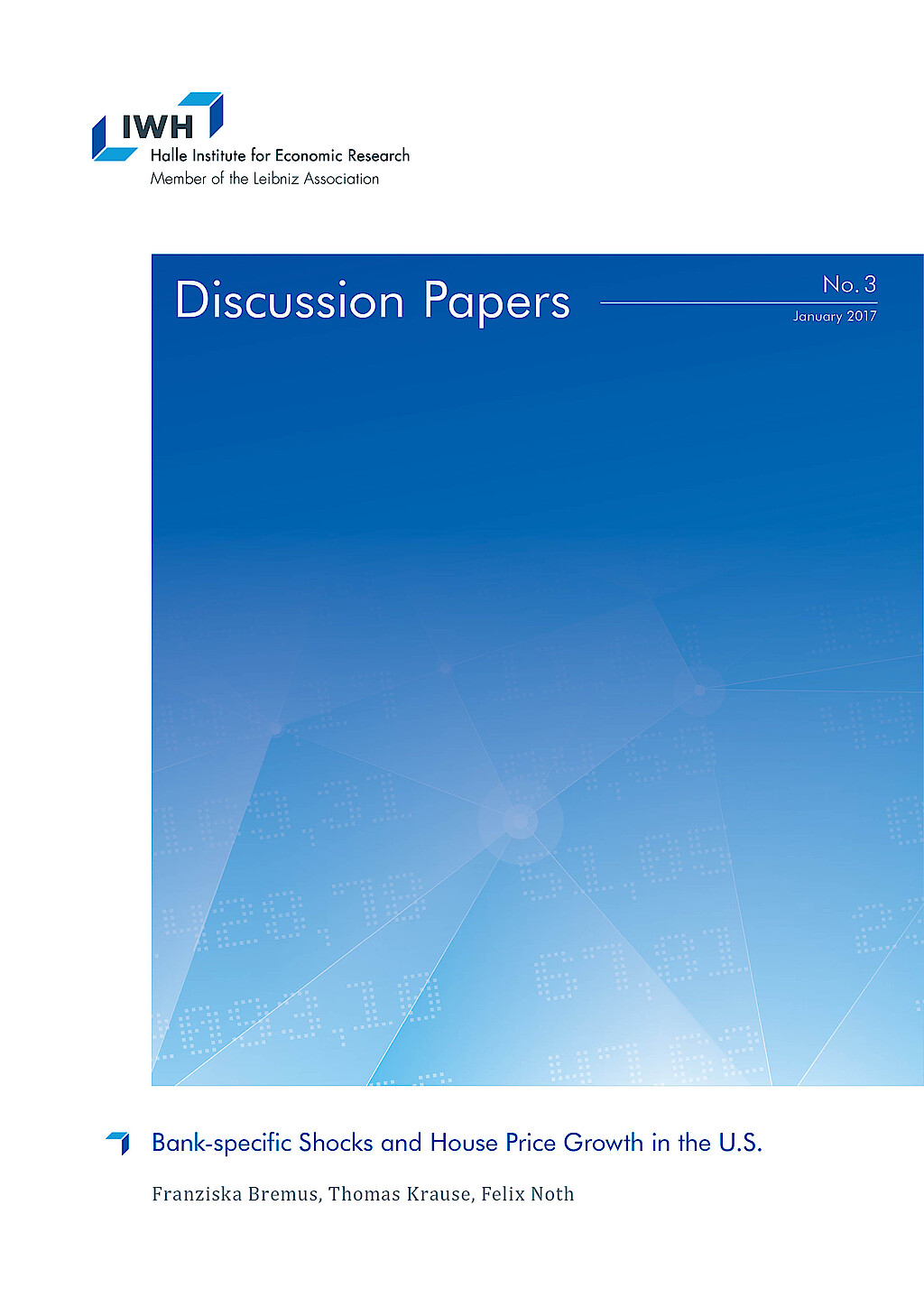
Bank-specific Shocks and House Price Growth in the U.S.
in: IWH Discussion Papers, Nr. 3, 2017
Abstract
This paper investigates the link between mortgage supply shocks at the banklevel and regional house price growth in the U.S. using micro-level data on mortgage markets from the Home Mortgage Disclosure Act for the 1990-2014 period. Our results suggest that bank-specific mortgage supply shocks indeed affect house price growth at the regional level. The larger the idiosyncratic shocks to newly issued mortgages, the stronger is house price growth. We show that the positive link between idiosyncratic mortgage shocks and regional house price growth is very robust and economically meaningful, however not very persistent since it fades out after two years.
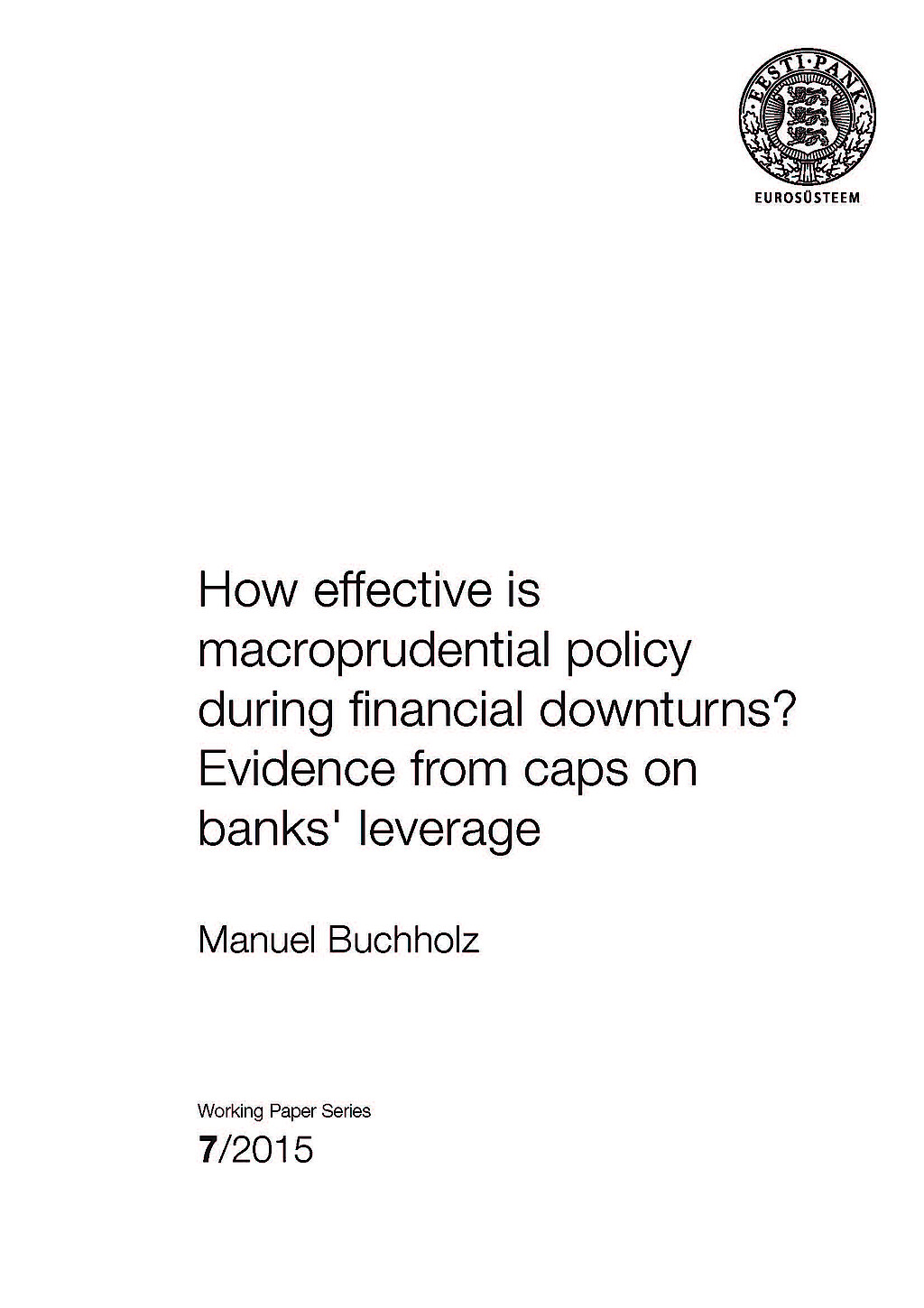
How Effective is Macroprudential Policy during Financial Downturns? Evidence from Caps on Banks' Leverage
in: Working Papers of Eesti Pank, Nr. 7, 2015
Abstract
This paper investigates the effect of a macroprudential policy instrument, caps on banks' leverage, on domestic credit to the private sector since the Global Financial Crisis. Applying a difference-in-differences approach to a panel of 69 advanced and emerging economies over 2002–2014, we show that real credit grew after the crisis at considerably higher rates in countries which had implemented the leverage cap prior to the crisis. This stabilising effect is more pronounced for countries in which banks had a higher pre-crisis capital ratio, which suggests that after the crisis, banks were able to draw on buffers built up prior to the crisis due to the regulation. The results are robust to different choices of subsamples as well as to competing explanations such as standard adjustment to the pre-crisis credit boom.

Monetary Policy under the Microscope: Intra-bank Transmission of Asset Purchase Programs of the ECB
in: IWH Discussion Papers, Nr. 9, 2015
Abstract
With a unique loan portfolio maintained by a top-20 universal bank in Germany, this study tests whether unconventional monetary policy by the European Central Bank (ECB) reduced corporate borrowing costs. We decompose corporate lending rates into refinancing costs, as determined by money markets, and markups that the bank is able to charge its customers in regional markets. This decomposition reveals how banks transmit monetary policy within their organizations. To identify policy effects on loan rate components, we exploit the co-existence of eurozone-wide security purchase programs and regional fiscal policies at the district level. ECB purchase programs reduced refinancing costs significantly, even in an economy not specifically targeted for sovereign debt stress relief, but not loan rates themselves. However, asset purchases mitigated those loan price hikes due to additional credit demand stimulated by regional tax policy and enabled the bank to realize larger economic margins.

Corporate Governance Structures and Financial Constraints in Multinational Enterprises – An Analysis in Selected European Transition Economies on the Basis of the IWH FDI Micro Database 2013 –
in: IWH Discussion Papers, Nr. 3, 2015
Abstract
In our analysis, we consider the distribution of decision power over financing and investment between MNEs’ headquarters and foreign subsidiaries and its influence on the foreign affiliates’ financial restrictions. Our research results show that headquarters of multinational enterprises have not (yet) moved much decision power to their foreign subsidiaries at all. We use data from the IWH FDI Micro Database which contains information on corporate governance structures and financial restrictions of 609 enterprises with a foreign investor in Hungary, Poland, the Czech Republic, Slovakia, Romania and East Germany. We match data from Bureau van Dijk’s AMADEUS database on financial characteristics. We find that a high concentration of decision power within the MNE’s headquarter implicates high financial restrictions within the subsidiary. Square term results show, however, that the effect of financial constraints within the subsidiary decreases and finally turns insignificant when decision power moves from headquarter to subsidiary. Thus, economic policy should encourage foreign investors in the case of foreign acquisition of local enterprises to leave decision power within the enterprise and in the case of Greenfield investment to provide the newly established subsidiaries with as much power over corporate governance structures as possible.



















